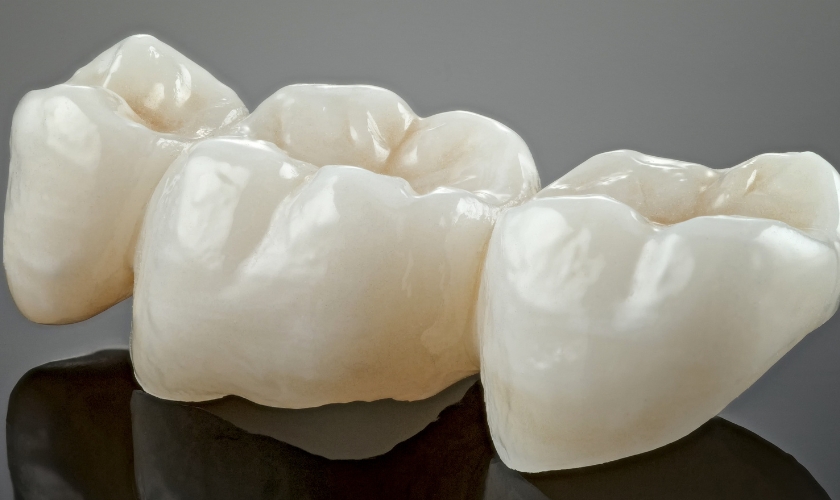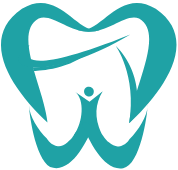How To Properly Take Care of Crowns?

Dental crowns are a common solution for restoring the function and appearance of damaged teeth. Whether your crown is made of porcelain, metal, or a combination of materials, proper care is crucial for maintaining its longevity and ensuring that it continues to protect your tooth effectively. Here’s a comprehensive guide on how to properly take care of your dental crowns.
Understanding Dental Crowns
Before diving into the care tips, it’s essential to understand what a dental crown is. A crown is a specially designed headgear that covers a damaged tooth, restoring its shape, size, strength, and appearance.
Crowns can be made from various materials, including porcelain, ceramic, metal, and composite resin. While crowns are durable, they are not indestructible and require proper care to avoid complications like fractures, decay, or gum disease.
Daily Care for Dental Crowns
Brush Twice Daily: Just like your natural teeth, crowns need to be brushed at least twice a day. Apply fluoride toothpaste and a toothbrush with soft bristles to clean around the crown and along the gumline. Brushing gets rid of food particles and plaque that might cause decay or gum disease, which can compromise the integrity of the crown.
- Floss Regularly: Flossing is vital for preventing plaque buildup around your crowns. Be gentle to avoid dislodging the crown, especially if it’s a temporary one. Consider using floss threaders or interdental brushes to clean between your teeth if regular flossing feels difficult. Make sure to floss daily, focusing particularly on the region where the gumline and crown meet.
- Rinse with Antibacterial Mouthwash: Using an antibacterial mouthwash can aid in the reduction of germs that lead to gum disease and plaque. After brushing and flossing, rinse your mouth to get to places that your toothbrush and floss may miss. Look for mouthwashes that are alcohol-free, as alcohol can eventually erode the connection that holds the crown to the tooth.
Protect Your Crowns
- Avoid Hard Foods: While dental crowns are strong, they are nevertheless susceptible to injury from biting on hard things like ice, nuts, or hard candy. Avoid these foods to prevent chipping or cracking your crown. If you need to eat something hard, try to chew it on the side of your mouth without the crown.
- Limit Sticky Foods: Sticky foods like caramels, taffy, or gum can pull on the crown, potentially loosening it. It’s best to avoid these foods altogether. If you do eat something sticky, make sure to clean your teeth and crown thoroughly afterward.
- Wear a Mouthguard: If you clench your teeth at night (a condition known as bruxism) or play contact sports, wearing a mouthguard is essential. Grinding can wear down or damage your crown, while a mouthguard can protect it from impact during sports. Your dentist can provide a custom-fit mouthguard that offers the best protection.
- Avoid Using Teeth as Tools: Many people use their teeth to open packages or cut tape, but this bad habit can damage both crowns and natural teeth. Always use scissors or other tools instead of your teeth to avoid putting undue stress on your dental work.
Importance of Attending Dental Appointments on This Matter
- Schedule Regular Check-ups: Regular dental visits are crucial for maintaining your crowns and overall oral health. In these appointments, your dentist can examine the condition of your crowns, ensure they’re still securely attached, and clean around them to remove any plaque buildup.
- Professional Cleanings: Even with excellent at-home care, professional cleanings are necessary to remove tartar that can’t be removed by brushing and flossing alone. Your dental hygienist can also give you suggestions for enhancing your at-home care regimen.
- Address Problems Early: If you notice any sensitivity, pain, or changes in your bite after getting a crown, contact your dentist immediately. These could be signs of a problem that, if left untreated, could compromise the crown or the underlying tooth.
Handling Crown Emergencies
- Loose or Dislodged Crown: If your crown feels loose or comes off completely, contact your dentist right away. In the meantime, you can use dental adhesive or toothpaste to temporarily hold the crown in place. Do not try to glue it back yourself, as this can cause more damage.
- Cracked or Broken Crown: A cracked or broken crown needs immediate attention. Avoid chewing on the affected side, and call your dentist to schedule an emergency appointment. Your dentist may be able to repair the crown, or in some cases, a replacement may be necessary.
Long-term Maintenance Tips
Watch for Changes
Over time, crowns may wear down, especially if you grind your teeth or consume a lot of acidic foods and drinks. Regular dental visits can help monitor any changes in your crowns and determine when they may need to be replaced.
Maintain a Healthy Diet
In addition to supporting general oral health, eating a balanced diet rich in vitamins and minerals can help preserve the integrity of your natural teeth and crowns. Steer clear of consuming too many acidic and sugary meals and beverages, which can lead to decay around the crown.
Stay Hydrated
Drinking plenty of water helps wash away food particles and bacteria that can lead to decay and gum disease. Water also helps maintain a neutral pH in your mouth, protecting both your natural teeth and crowns.
So, taking care of your dental crowns is essential for ensuring their longevity and maintaining your oral health. By following proper brushing and flossing techniques, avoiding harmful habits, and visiting your dentist regularly, you can keep your crowns in excellent condition for many years.
Keep in mind that while crowns are durable, they still require the same level of care and attention as your natural teeth to function effectively and look their best. By being proactive and attentive to your oral hygiene and dental care, you can enjoy the benefits of your crowns without complications.




